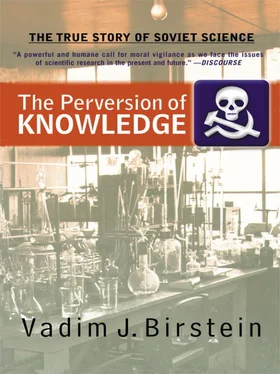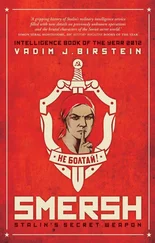At the beginning of 1998, thousands of scientists wrote letters to the FSB in support of their colleagues Vladimir Borodin and Mikhail Galaktionov of the Institute of Acoustics in Moscow, whom the FSB had been considering accusing of passing state secrets to the American company Lockheed. 31However, in 1999 the FSB opened a new case, this time against nuclear physicist and environmentalist Dr. Vladimir Soyfer, who researched nuclear contamination in the Pacific Ocean. He was accused of mishandling classified documents. 32
The uncertainty of Russian law on state secrets allows the FSB to interpret any environmental activity as spying. Again, the whole situation is quite Orwellian: Thirty-six Russian ministries and departments compile their own lists of secret information that may be classified and can be used by the FSB to bring charges of espionage. 33
Despite the fact that Viktor Cherkesov was the main organizer of the Nikitin case, as well one of those involved in persecutions of dissidents during the Soviet years, in May 2000 President Putin appointed his old crony to a prestigious federal post. 34Cherkesov’s appointment was met mostly negatively in St. Petersburg. The role of the FSB in the life of the city and its university has become almost the same as that of the KGB during Soviet times—FSB officers openly attend seminars at St. Petersburg University in order to evaluate the students. Surprisingly, Yurii Saveliev, rector of St. Petersburg University, supported this interference. In August 2000, in an interview with Washington Post correspondent Daniel Williams, he said: “The FSB is very active in our university. They get 20 to 30 graduates from us every year. I am very happy about this, because the organization like this needs prepared staff.” 35
In his nationally televised 2000 New Year’s Eve address, Putin declared, “The potential of the special services will not just be maintained but increased.” 36Before that, on December 15, 1999, the day of the tenth anniversary of Academician Sakharov’s death, Putin cynically put flowers on Sakharov’s grave. The Russian journalist Juliya Kalinina sadly wrote: “If Andrei Dmitrievich could see Putin approaching him, he would die a second time.” 37
Almost immediately, in the first days of the new century, Putin started to fulfill this promise. He signed legislation giving nine major security and law enforcement bodies (FSB, SVR, MVD, tax police, Border Guards, Customs Committee, Kremlin Security Service, Presidential Security Service, and Parliamentary Security Service) the right to control the Internet. 38Now Internet service providers must link their computers, using special technology developed by the FSB, with those at the FSB headquarters. In response, the famous human rights activist and wife of the late Academician Sakharov, Yelena Bonner, said, “This means Russia has officially become a police state.”
In October 2000, President Putin signed an official thirty-seven-page document entitled, “Doctrine of Information Security of the Russian Federation,” aimed at protecting Russia’s national security in view of the information revolution. 39The whole document is full of Cold War phraseology. It is not clear to what extent this control and censorship will be applied to scientific information.
Amazingly, some Russian scientists (connected with military production) demand even more strict control over state secrets. On November 10, 2000, the state Russian news agency ITAR-TASS published a letter signed by Corresponding Member of the Academy Barrickad Zamyshlyaev of the Central Institute of Physics and Technology and Academicians Vladimir Kiryukhin, Fyodor Mitenkov, Ashot Sarkisov, and Nikolai Khlopkin. They wrote:
Russia has something in the military, technical, and scientific areas to be proud of and something to protect against uninvited guests. The latter take advantage of our openness, economic difficulties and sometimes mercenary interests of some representatives of the military-industrial complex in a bid to obtain Russian know-how and breakthrough technologies for next to nothing. 40
The Russian Nobel Prize winner of 2000, Zhores Alfyorov, academician and director of the Ioffe Physical-Technical Institute in St. Petersburg, appealed to Putin personally to improve funding for Russian science. “With Vladimir Vladimirovich’s help there will be a new impulse from politics in science and cutting-edge technologies,” Alfyorov said after a meeting with Putin. 41I am not sure that after this meeting Russian science will be properly funded, but I am positive that the security service structures in charge of science will be. Unfortunately, Alfyorov belongs to the Communist faction in the Russian Duma and, therefore, apparently believes in the Soviet system of organization of science, including KGB/FSB control.
The financial crisis of Russian science could be potentially dangerous in two ways. First, Russian nuclear, chemical, and biological warfare technology could be sold or smuggled to such countries as Iran and Iraq, despite American programs to help former Soviet military scientists to destroy stockpiles of these substances. 42Terrorism is an additional problem. Thus, enriched uranium has already been smuggled out of the former Soviet Union by the Russian Mafia. 43Although the threat of chemical and biological terrorist attacks is not high (there have been seventy-one actual attacks from 1900 until May 1999, with 123 fatalities and 3,774 injuries), such substances from the Soviet past as cyanide were among the tools used. 44In one case within the United States, even Mairanovsky’s beloved ricin was prepared for assassination attacks. In 1991, four members of the Minnesota Patriots Council acquired ricin for use in a plot to assassinate Internal Revenue Service officials, a U.S. deputy marshal, and local law enforcement officers. The FBI arrested the terrorists before the attacks were carried out. However, many modern agents such as VX nerve gas, anthrax, salmonella bacteria, and the HIV virus were also among international terrorists’ tools.
Second, in violation of international agreements, work on chemical and biological weapons in Russia might be intensified because the state funding for military technology will be increased. The law on state secrets can be easily used to cover up such research. This brings to mind the ghosts of Mairanovsky, Muromtsev, Eitingon, and Sudoplatov and their work on poisons.
This is not only a guess. In July 2000, when I visited Moscow, my molecular biology colleagues said that Academician A. S. had offered President Putin’s administration a new project on biological warfare, the Biological Shield of Russia, for consideration. If accepted, mainly institutes of the Russian Academy of Sciences located in the town of Pushchino would be involved in the project. I understand that this academician is trying to find a solution to keep his institute alive and employees paid (their salaries are so miserable that the employees can hardly survive). But this short-term solution can have serious consequences for the whole world.
After Putin’s appointment, the former political prisoner and famous Russian human rights activist (and also former president Yeltsin’s adviser on human rights and a deputy of the Duma), the biologist Sergei Kovalev, said that only when Russians admitted collective guilt for the past would they reject those with a KGB past. 45The Russian journalist Anna Politkovskaya expressed the same opinion, but more emotionally: “We are living through the darkest time of the last scores of years. The authorities in power went crazy trying to cover up their own crimes and pretending to be irreconcilable [in the war with the Chechens]. For this purpose they are using neo-Stalinism. This [reverse to the past] occurred at once and naturally because the country has the same feeling.” 46On April 27, 2001, Politkovskaya received an award from the New York-based Overseas Press Club for her courageous reports on the war in Chechnya. 47I hope her warning about the return of Russian politics to the Soviet past will be heeded.
Читать дальше











